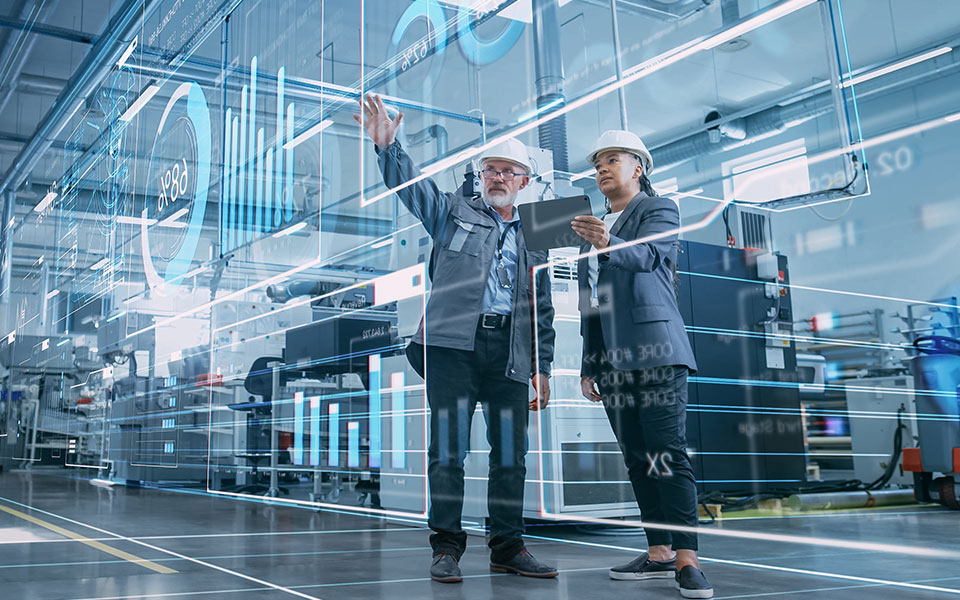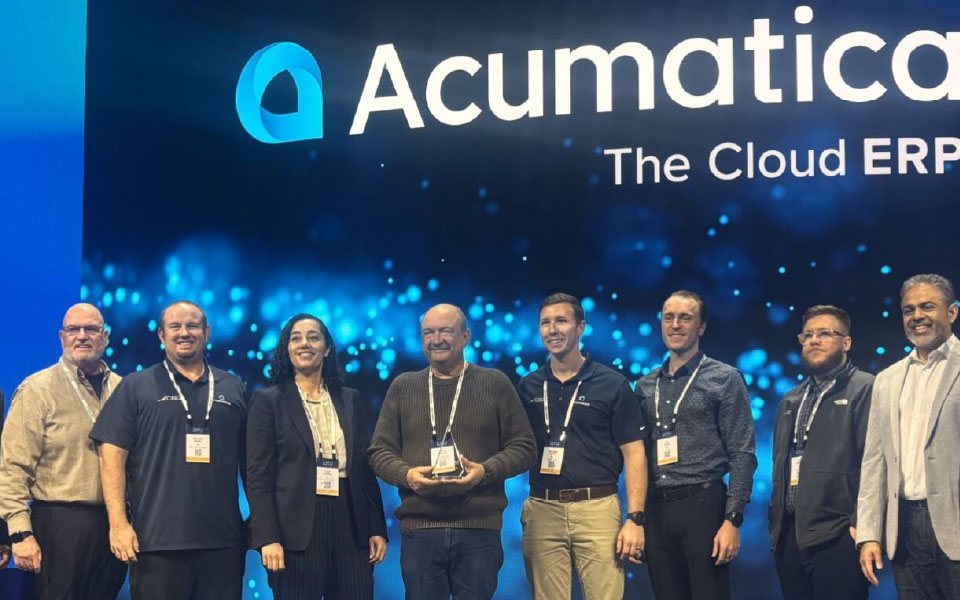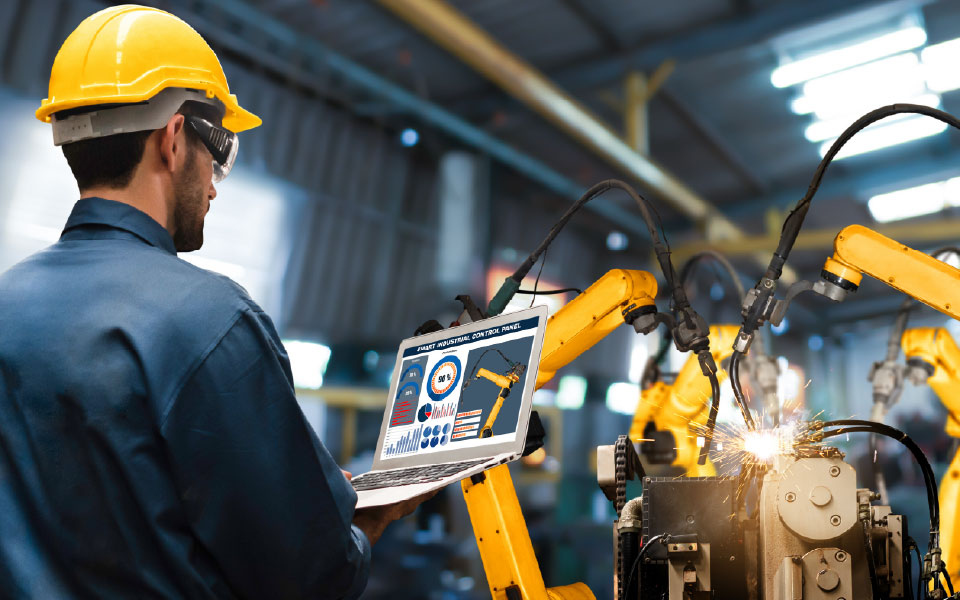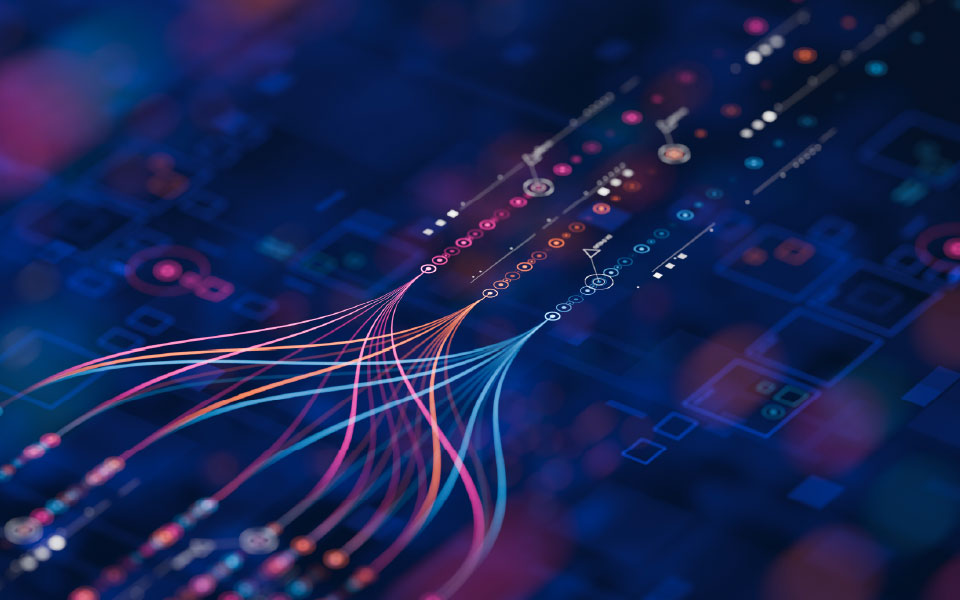In an era defined by rapid technological advancements and heightened competition, businesses are continuously on the lookout for innovative strategies to streamline operations, cut expenses, and deliver superior customer service. One of the groundbreaking solutions making waves in this landscape is intelligent automation (IA). By seamlessly integrating artificial intelligence (AI) with automation technologies, IA is revolutionizing how organizations function, enabling them to achieve unprecedented levels of efficiency and effectiveness.
Despite the recent hype, Artificial Intelligence (AI) still relies on significant human interaction with the underlying AI models to achieve the promised value. Adding automation techniques further amplifies the value, creating true workflow-enabled process improvement.
What is Intelligent Automation?
Intelligent automation refers to the integration of AI technologies with automation systems to create processes that can perform tasks typically requiring human intelligence. Unlike traditional automation, which relies on predefined rules and operates within set boundaries, IA uses AI to enhance decision-making capabilities, allowing systems to learn from data and improve over time.
Key technologies that fall under the umbrella of IA include:
- Machine Learning: Algorithms that enable systems to learn from and make predictions based on data
- Natural Language Processing (NLP): The ability for machines to understand and interpret human language
- Computer Vision: The capability of machines to interpret and make decisions based on visual inputs
- Document Understanding: The capability of machines to learn to read and ingest unstructured and semi-structured document formats with minimal pre-training.
These technologies allow IA to analyze vast amounts of data, recognize patterns, and make informed decisions without human intervention, thereby automating more complex and variable tasks.
Automation vs. Intelligent Automation
Understanding the distinction between standard automation and intelligent automation is crucial for businesses looking to leverage these technologies effectively.
Scope of Tasks
- Automation: Traditional automation is designed for repetitive, rule-based tasks with clear inputs and outputs. Examples include robotic process automation (RPA) for data entry, automated email responses, and assembly line robots.
- Intelligent Automation: IA can handle more complex tasks by incorporating AI, allowing systems to adapt to new scenarios, learn from data, and make decisions based on insights rather than just predefined rules. Examples include chatbots providing customer support using NLP, AI-driven fraud detection systems, and predictive maintenance in manufacturing.
Adaptability
- Automation: Traditional automation is rigid and static, requiring manual reprogramming for any changes in process or requirements.
- Intelligent Automation: IA is flexible and dynamic, adjusting operations based on new data and learning algorithms, reducing the need for constant human intervention.
Decision-Making
- Automation: Decision-making capabilities are limited to the rules set by human programmers.
- Intelligent Automation: IA systems simulate human decision-making by analyzing data, predicting outcomes, and optimizing processes in real-time.
Impact Across Industries
The adoption of intelligent automation is revolutionizing various industries by enhancing efficiency, reducing costs, and enabling new capabilities. Here’s a closer look at how IA is impacting some key sectors:
Healthcare
- Applications: IA is used for patient data management, diagnostic processes, and personalized treatment plans. AI algorithms can analyze medical images to detect diseases at an early stage, improving patient outcomes.
- Benefits: Improved accuracy in diagnostics, reduced administrative burden on healthcare professionals, and enhanced patient care through personalized treatment plans.
Finance
- Applications: Financial institutions use IA for risk assessment, fraud detection, customer service chatbots, and algorithmic trading. IA systems can process large volumes of transactions and identify anomalies faster than humans.
- Benefits: Increased accuracy in detecting fraudulent activities, enhanced customer service, and optimized trading strategies that maximize profits.
Manufacturing
- Applications: IA enables predictive maintenance, quality control, and supply chain optimization. Intelligent systems can predict equipment failures before they occur and ensure that products meet high-quality standards.
- Benefits: Reduced downtime due to predictive maintenance, consistent product quality, and streamlined supply chain operations.
Retail
- Applications: Retailers leverage IA for personalized marketing, demand forecasting, and inventory management. AI-driven insights help businesses understand customer preferences and optimize stock levels.
- Benefits: Enhanced customer experience through personalized recommendations, minimized stockouts and overstock situations, and increased operational efficiency.
Customer Service
- Applications: Intelligent virtual assistants and chatbots are used to handle customer inquiries, provide product information, and resolve issues. These systems can understand and respond to natural language queries, making customer interactions more seamless.
- Benefits: Improved customer satisfaction due to faster response times, 24/7 availability, and reduced workload for human agents.
The rise of intelligent automation is not merely a trend but a fundamental shift in how businesses operate. As IA technologies continue to evolve, they will unlock new opportunities and drive innovation across sectors. By understanding and leveraging IA, businesses can navigate the complexities of the modern digital landscape and position themselves for long-term success.
To discover how intelligent automation can transform your business operations and drive growth, contact us today. Let our CBIZ professionals help you harness the power of IA and elevate your business to new heights.
© Copyright CBIZ, Inc. All rights reserved. Use of the material contained herein without the express written consent of the firms is prohibited by law. This publication is distributed with the understanding that CBIZ is not rendering legal, accounting or other professional advice. The reader is advised to contact a tax professional prior to taking any action based upon this information. CBIZ assumes no liability whatsoever in connection with the use of this information and assumes no obligation to inform the reader of any changes in tax laws or other factors that could affect the information contained herein. Material contained in this publication is informational and promotional in nature and not intended to be specific financial, tax or consulting advice. Readers are advised to seek professional consultation regarding circumstances affecting their organization.
“CBIZ” is the brand name under which CBIZ CPAs P.C. and CBIZ, Inc. and its subsidiaries, including CBIZ Advisors, LLC, provide professional services. CBIZ CPAs P.C. and CBIZ, Inc. (and its subsidiaries) practice as an alternative practice structure in accordance with the AICPA Code of Professional Conduct and applicable law, regulations, and professional standards. CBIZ CPAs P.C. is a licensed independent CPA firm that provides attest services to its clients. CBIZ, Inc. and its subsidiary entities provide tax, advisory, and consulting services to their clients. CBIZ, Inc. and its subsidiary entities are not licensed CPA firms and, therefore, cannot provide attest services.















